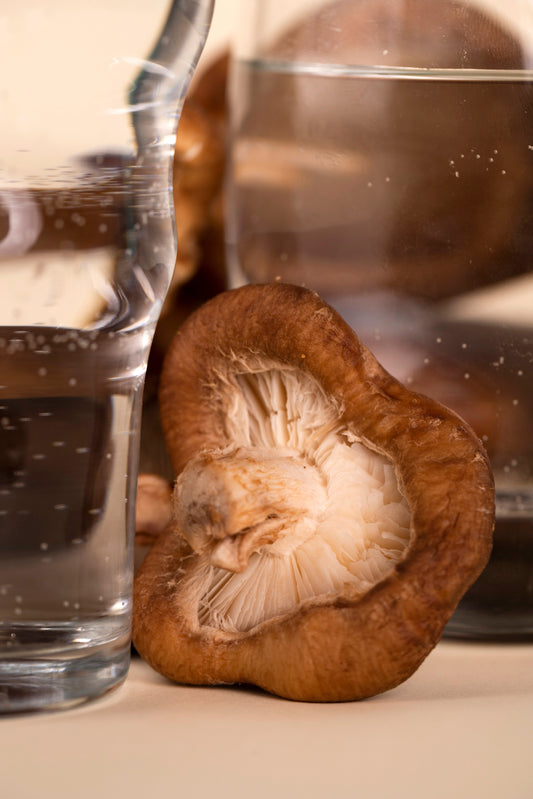Vitamin E, a crucial nutrient, plays a vital role in maintaining your overall health and well-being. From preventing clotting to supporting heart function, vitamin E is a powerhouse nutrient that everyone should be aware of. This article delves into the numerous benefits of vitamin E, highlighting why it should be a staple in your diet.
Prevents Clotting and Reduces Stroke Risk
One of the most significant benefits of vitamin E is its ability to prevent clotting and reduce the risk of strokes. Vitamin E's anticoagulant properties help maintain proper blood consistency, which is essential for preventing the formation of dangerous blood clots that can lead to strokes.
Ensure Your Supplement is Food-Based
To maximize the benefits of vitamin E, it's crucial to choose a supplement that is food-based. Food-based supplements provide a complex array of nutrients that are more easily absorbed and utilized by the body compared to synthetic versions.
Supports Heart and Muscle Function
Vitamin E is essential for the proper functioning of the heart and other muscles. It helps maintain muscle integrity by ensuring that muscles, including the heart, are filled with sufficient oxygen and blood flow. A deficiency in vitamin E has been linked to conditions such as angina and heart attacks.
Essential for Heart Health
Vitamin E is particularly important for heart health. It acts as an antioxidant to protect arteries and decrease the risk of heart disease, stroke, and even certain cancers.
Increases Collateral Circulation
One of the remarkable benefits of vitamin E is its ability to increase collateral circulation. This means that vitamin E helps regrow additional blood vessels around clogged arteries, improving overall blood flow and oxygen delivery to tissues. This process is crucial for maintaining optimal cardiovascular health.
Enhances Oxygen Delivery and Tissue Health
Vitamin E plays a significant role in boosting capillary dilation and oxygen delivery. By improving blood flow and oxygen transport, vitamin E helps decrease the need for oxygen in tissues, ensuring that all parts of your body function efficiently.
Immune Support and Inflammation Reduction
Vitamin E is renowned for its immune-boosting properties and its ability to reduce inflammation. This nutrient supports the immune system, helping your body fight off infections and illnesses. Additionally, its anti-inflammatory effects are beneficial for reducing chronic inflammation, which is linked to various health conditions.
Aids in Healing and Skin Health
Vitamin E is beneficial for skin health, particularly in aiding the healing process of burns and softening old scars. Its antioxidant properties help protect the skin from damage and promote the repair of damaged tissues.
Prevents Bedwetting
Interestingly, vitamin E has been found to help prevent bedwetting. This is particularly useful for children who struggle with this condition, providing a natural remedy to improve their quality of life.
Nutrient Depletion and Dietary Sources
Refined grains and carbohydrates are known to deplete vitamin E reserves in the body. Consuming refined carbohydrates like bread, pasta, cereal, crackers, biscuits, waffles, and pancakes can lead to a deficiency in vitamin E. It's important to be mindful of your intake of refined foods and to incorporate vitamin E-rich foods into your diet. Some of the best sources of vitamin E include wheat germ oil, sunflower seeds, and almonds.
Top Sources of Vitamin E
-
Sunflower Seeds: Sunflower seeds are easily available in stores and loaded with vitamin E. They are among the best dietary sources, providing a significant amount of this essential nutrient.
-
Wheat Germ Oil: Although wheat germ oil contains even more vitamin E than sunflower seeds, it may not be keto-friendly due to its concentrated oil form.
-
Raw Sunflower Seeds: It's important to consume raw sunflower seeds rather than roasted ones, as roasting can cause them to lose up to 80% of their vitamin E content. However, roasted sunflower seeds are still rich in other nutrients like Vitamin B1, magnesium, manganese, zinc, copper, selenium, and Vitamin B6.
-
Almonds: Not only rich in vitamin E but also versatile; they can be soaked and used to make fresh almond milk.
-
Avocado Oil, Seeds, Nuts, and Vegetables: Additional excellent sources of vitamin E.
Soaking Almonds for Better Nutrient Absorption
To get the most out of almonds, soak them before consumption. Soaking almonds enhances nutrient absorption and makes it easier for your body to digest them. You can also use soaked almonds to make fresh almond milk by blending them with water, salt, and sweeteners like stevia and vanilla.
Sensitivity to Heat
Vitamin E is sensitive to heat, so it's best to consume raw seeds and nuts to preserve their vitamin E content. Cooking or roasting can reduce the effectiveness of this vital nutrient. Including leafy greens, salads, and avocados in your diet can also help you maintain adequate vitamin E levels.
The Vitamin E Complex
Vitamin E should be consumed as a complex, not as isolated parts. The vitamin E complex consists of different components, including tocopherols and tocotrienols. Consuming the whole vitamin E complex ensures you receive the full spectrum of benefits.
LDL and Antioxidant Function
Vitamin E relies on low-density lipoprotein (LDL) to travel through the body as an antioxidant. LDL is a carrier protein for cholesterol, and vitamin E functions as an antioxidant within LDL, protecting arteries and reducing the risk of heart disease and stroke.
Gamma Tocopherol and Smoking
Gamma tocopherol, a form of vitamin E, offers protective factors against smoke and free radical damage. Smoking depletes the body's vitamin E levels, making it even more important for smokers to ensure adequate intake of this nutrient.
Tocotrienols and Health Benefits
Tocotrienols, another component of the vitamin E complex, support cholesterol management, decrease the risk of breast cancer, and promote skin health. These compounds further enhance the overall health benefits of vitamin E.
Vitamin E and Hormonal Balance
Vitamin E also supports hormonal balance and can help alleviate symptoms such as chest pain, heart problems, and hot flashes. Smokers, in particular, are at risk of depleting their vitamin E levels and should ensure they maintain an adequate intake.
High Vitamin E Foods
Despite the availability of vitamin E-rich foods, most people are deficient in this vital nutrient. Including foods such as almonds, spinach, avocado, hazelnuts, peanuts, and leafy greens in your diet is essential for maintaining adequate vitamin E levels.
Conclusion
Vitamin E is a vital nutrient with a wide array of health benefits. From supporting cardiovascular health to boosting the immune system and enhancing skin health, ensuring you get enough vitamin E can significantly improve your overall well-being. Opt for food-based supplements and incorporate vitamin E-rich foods into your diet to reap the maximum benefits. Your heart, muscles, and entire body will thank you for it.




